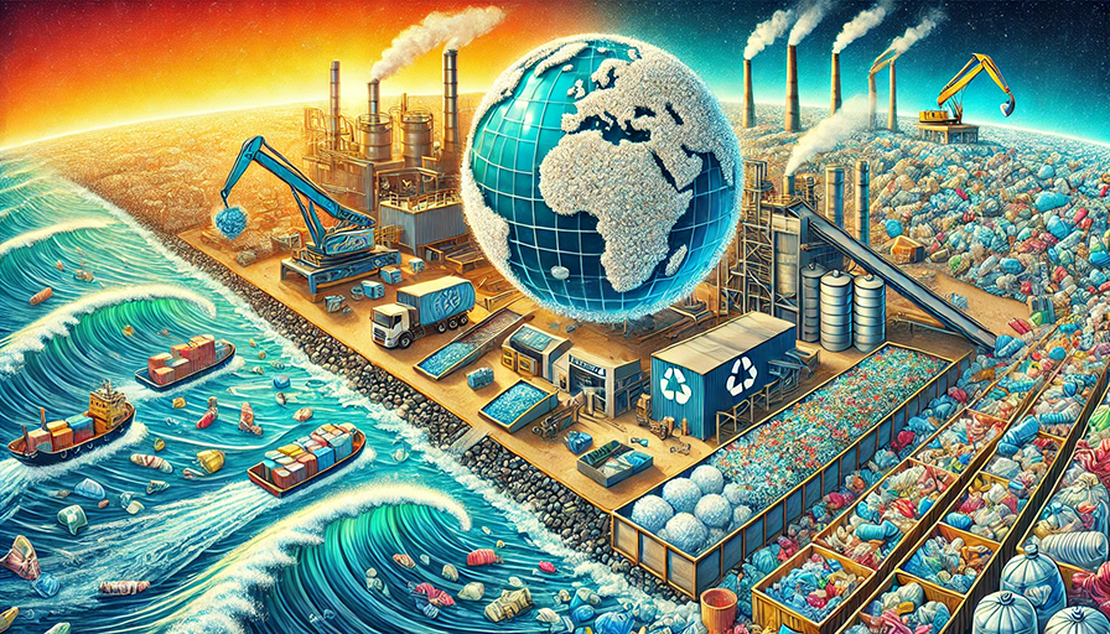The Complexities of Plastic Recycling
Plastic recycling is widely recognized as a cornerstone of sustainable waste management. However, beneath its seemingly eco-friendly surface lies a web of economic and logistical challenges that call into question its overall efficacy. With only about 9-10% of plastic actually being recycled globally, the question looms: Is recycling plastic truly worth the effort?
The Reality of Plastic Recycling Rates
Globally, a staggering amount of plastic waste is generated, yet only a fraction is properly recycled. This issue stems from inefficiencies in collection, sorting, and processing, compounded by a lack of consistent global infrastructure. For many regions, the capacity to manage recycling effectively is severely limited, leaving much of the plastic destined for landfills, incineration, or, worse, oceans and rivers.
The Economics of Recycling: An Uneven Playing Field
Recycling plastic is not just a technical challenge—it’s an economic one. The costs associated with collecting, sorting, and processing recyclables often outweigh the benefits, especially when market prices for recycled materials are low. Unlike virgin plastic production, which benefits from subsidies and established supply chains, recycled plastic relies on a patchwork system that struggles to compete economically.
Reports from organizations like the Environmental Protection Agency (EPA) and the Ellen MacArthur Foundation highlight these economic hurdles. For instance, the EPA’s “Advancing Sustainable Materials Management” report delves into recycling rates and emphasizes the disparity between costs and benefits. These reports make it clear that without systemic changes, recycling programs will continue to face an uphill battle.
The Environmental Trade-offs: Landfill vs. River Pollution
When comparing compacted plastic waste in landfills to plastic pollution in rivers and oceans, the environmental impact is stark. While compacted waste in a well-managed landfill poses limited harm due to containment measures, plastic in waterways wreaks havoc on ecosystems. Rivers often serve as conduits, funneling plastic waste into oceans and contributing to the Great Pacific Garbage Patch. The resulting environmental damage is devastating, from harming marine life to disrupting entire ecosystems.
While land filling is far from ideal, it remains a less damaging alternative to allowing plastic to pollute waterways. However, this trade-off highlights the urgent need for innovative solutions that transcend traditional waste management practices.
The Path Forward: Beyond Recycling
To make plastic recycling a truly effective solution, systemic changes are essential. These include: 1. Investing in Advanced Recycling Technologies: Innovations like chemical recycling and AI-driven sorting systems have the potential to improve recycling rates and reduce costs. 2. Economic Incentives: Policies that level the playing field, such as subsidies for recycled materials or penalties for excessive virgin plastic production, can drive meaningful change. 3. Global Cooperation: Addressing plastic pollution requires a unified approach, with nations collaborating to establish consistent standards and infrastructure. 4. Shifting Focus to Reduction: While recycling is important, reducing overall plastic consumption through sustainable alternatives and consumer behavior changes is equally crucial.
Conclusion: Is Recycling Worth It?
The answer lies in perspective. Recycling plastic, while imperfect, remains a better alternative to landfilling or polluting rivers and oceans. However, it’s not a silver bullet. The low recycling rates and high costs underscore the need for a broader, more holistic approach to waste management.
By addressing the systemic challenges and prioritizing reduction alongside recycling, society can work toward a future where plastic pollution is no longer an insurmountable crisis. Recycling is worth the effort, but only as part of a larger strategy to tackle the environmental and economic complexities of plastic waste.
⚠️ Please take a look at the LLM Disclaimer
